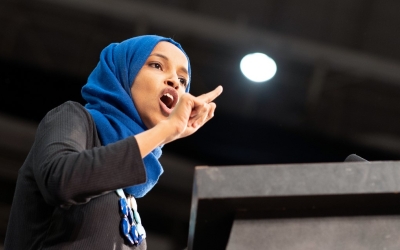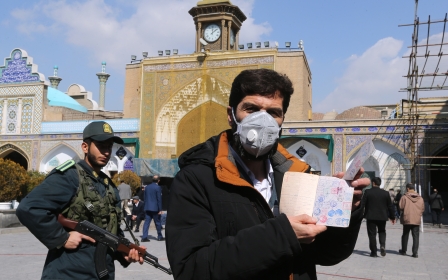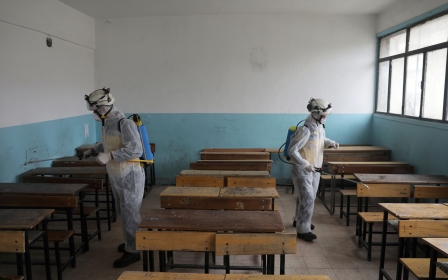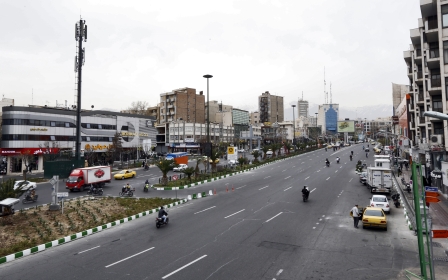US accused of making Iran's coronavirus crisis worse after issuing new sanctions
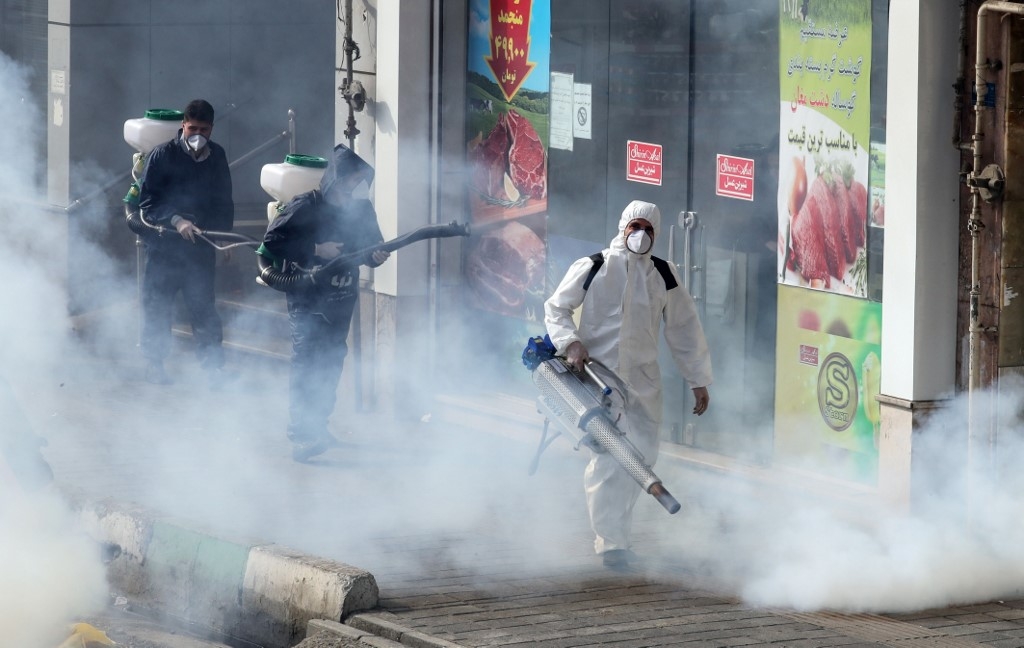
The United States has been criticised for issuing a fresh batch of sanctions against Iran, days after the Islamic Republic pleaded for international assistance to help contain the spread of the coronavirus.
The Trump administration issued sanctions against nine entities and three individuals related to Iran's transport of petrochemical products on Wednesday, days after Foreign Minister Javad Zarif made an urgent appeal for life-saving medicines and equipment.
Secretary of State Mike Pompeo told the House Foreign Affairs Committee that the sanctions were aimed at "depriving the regime of critical income from its petrochemical industry and furthering Iran's economic and diplomatic isolation."
Iran is one of the countries hardest-hit by the coronavirus pandemic with more than 17,000 confirmed cases and 1,135 reported deaths.
'[The sanctions] are a testament to this administration's doctrinal belief in the effectiveness of sanctions to bring Iran to its knees'
- Ali Vaez, director of Iran Project at the International Crisis Group
White House hopeful Bernie Sanders denounced the latest announcement, saying the US "should not be contributing to this humanitarian disaster."
New MEE newsletter: Jerusalem Dispatch
Sign up to get the latest insights and analysis on Israel-Palestine, alongside Turkey Unpacked and other MEE newsletters
"Iran is facing a catastrophic toll from the coronavirus pandemic. As a caring nation, we must lift any sanctions hurting Iran's ability to address this crisis, including financial sanctions," the Vermont Senator tweeted.
The US unilateraly launched its 'maximum pressure' campaign in 2018 after withdrawing from the Joint Comprehensive Plan of Action (JCPOA), otherwise known as the Iran nuclear deal, which was signed by the US, Iran, France, Germany, the UK, the European Union, China and Russia in 2015.
Its aim was to curb Iran's nuclear programme in exchange for lifting heavy sanctions against Iran.
According to Human Rights Watch, the sanctions have devastated Iran's flagging health-care system, hindering the ability for ordinary Iranians to access health care.
Although companies and banks are able to avoid sanctions when it comes to humanitarian channels, many fear getting trapped in a complicated web of US secondary sanctions.
The result, concluded the human rights group, "has been to deny Iranians access to essential medicines and to impair their right to health."
'Squandering opportunity'
Ali Vaez, the Iran Project director at the Washington-based think-tank International Crisis Group, said the Trump administration was exploiting the pandemic to foster unrest within Iran against the country's leadership.
"[The sanctions] are a testament to this administration's doctrinal belief in the effectiveness of sanctions to bring Iran to its knees," Vaez told Middle East Eye.
"The administration now seems even more hopeful that the compounded impact of sanctions and coronavirus outbreak will help it achieve its objectives in Iran.
Vaez wrote earlier in an article for Foreign Policy that the pandemic could be used as a moment for "viral diplomacy" between the two countries, however "neither side is likely in the mood to engage the other".
"As such, they are likely to squander the opportunity this public health-crisis presents for de-escalating tensions with Tehran," Vaez told MEE.
On Monday, China and Russia called on the US to lift its sanctions on Iran, saying Washington is thwarting Tehran's efforts to counter the pandemic, with Russia saying the sanctions are "anti-human."
The United Kingdom has also been privately calling for Washington to ease its sanctions in order to help Iran fight the outbreak.
Some US Democratic politicians had been calling on the Trump administration to lift sanctions on Tehran long before the viral outbreak, with Congresswoman Ilhan Omar saying the country needs to "suspend these sanctions before more lives are lost".
Iran is in dire need of funds, medical supplies and goods to help it contain the disease, and has said that US sanctions have led to a loss of $200bn in foreign-exchange income and investment since Trump restarted the sanctions in 2017.
Zarif has sent letters to leaders of several countries asking the international community to "disregard inhuman US sanctions".
Middle East Eye delivers independent and unrivalled coverage and analysis of the Middle East, North Africa and beyond. To learn more about republishing this content and the associated fees, please fill out this form. More about MEE can be found here.


